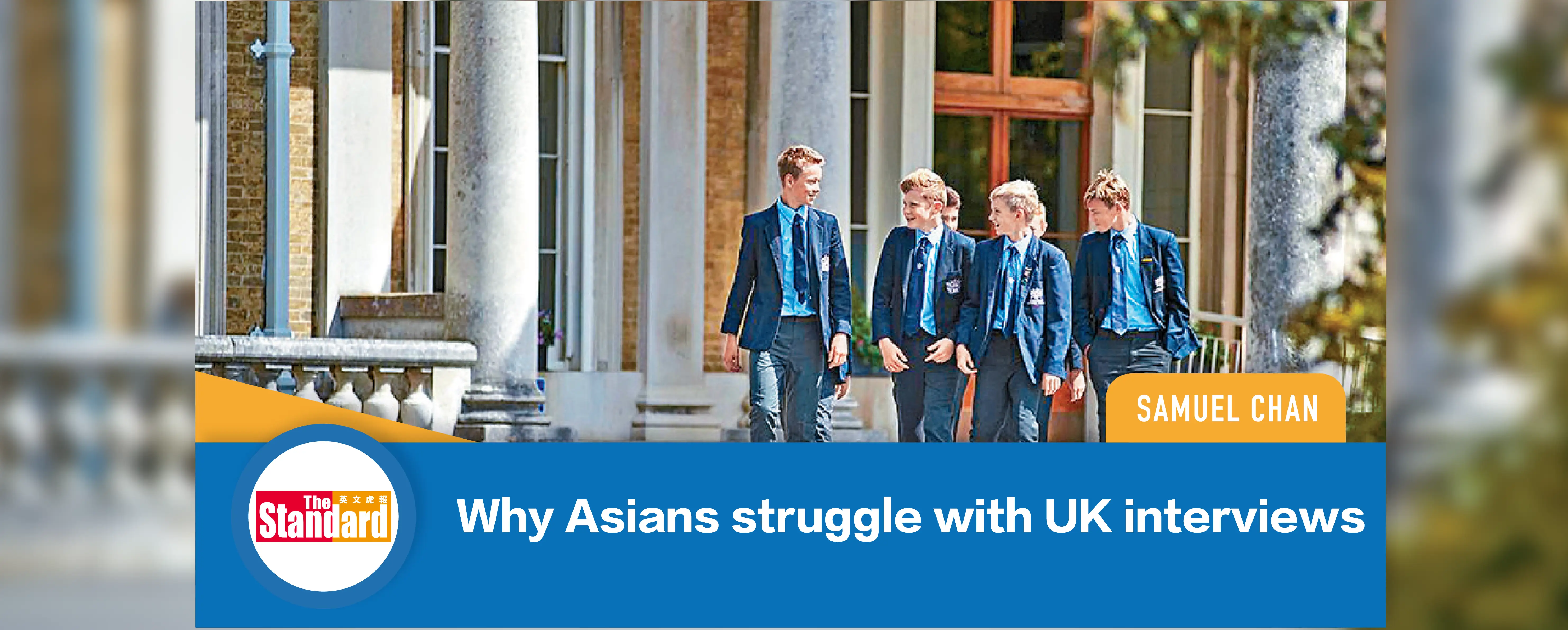If you were decorating your home and had to choose between 20 identical pictures, how do you pick which ones to hang on your wall? It’s an impossible task because they all have exactly the same qualities.
But this is what it often feels like for admissions staff at UK schools when they interview students from Hong Kong and Asia.
Every student gives roughly the same answers to all their questions, as though they are following a script. When asked about their favorite book, they all say Harry Potter or Sherlock Holmes.
Asked a question on some subject they haven’t prepared, and they struggle to answer.
The students are only young and they’re trying their best. The admissions teams are trying to be accommodating and are sympathetic to the fact that students aren’t speaking their first language and are feeling nervous. The parents are doing all they can to get their children into good schools.
So what is the problem? The problem really comes down to a cultural difference between the United Kingdom and Asia. The way we educate our children is different – we emphasize different qualities and have different expectations.
I found the recent feedback my team received from student interviews with City of London Freemen’s School – an excellent school in Surrey – to be very helpful.
Head of admissions Debbie Bellenger said: “Most of the candidates had been very ‘prepped’ for their interviews and gave the answers that they had been trained to give, rather than their own ideas.
“It is very difficult for us to get an idea of a student’s true personality and potential when they are all giving us almost identical responses, and there is little to go on to judge whether they will be a good fit for us, or indeed us for them.”
She explained what they were really seeking at Freemen’s: “We are looking for candidates who can think independently and show a bit of spark or originality.
“Our interview questions are designed to probe for these qualities, but time and time again, questions are shut down by stock answers, and the students seem unable to deviate from what they have prepared.”
Not only is there this problem of behaving a bit like a robot following a program, but there’s also the issue that even those prepared answers cover only a limited amount of subjects.
The children talk about their work and their exams, but not their interests or thoughts outside of that. For instance, hobbies, interest in sport, art, music, dancing or whatever it happens to be.
This is not just a problem that one school has experienced. This is typical of what we find at Britannia StudyLink as we prepare students for entry into the UK education system.
So what can parents do to help?
Understand that UK schools are not nearly as bothered about exam results as you probably think they are.
It may seem hard to believe that a top school will care if a child likes to spend their time making dim sum and get really excited about it – but it’s true.
It might seem ridiculous to Asian parents that somewhere famous like Eton or Harrow would be interested in the fact that their child likes to write stories. But this is exactly the sort of thing they want.
If children are naturally funny, admissions teams love to see this. If they like to show off, if they are very reflective, if they love to do impersonations, this is what the interviewers want to get a sense of.
Remember that UK education takes a holistic approach. This means that it isn’t just concerned with test scores. Of course, good academic results are important, but they are not the only thing that matter.
“Interviews would be a more productive exercise for both school and student if we could break through the perceived ideas of giving the ‘right’ answers to our questions and enable candidates to have the freedom to tell us about themselves in a natural way,” said Bellenger.
“They need to be able to play and explore, as well as study, as these are also valuable opportunities for personal development and growth.”

